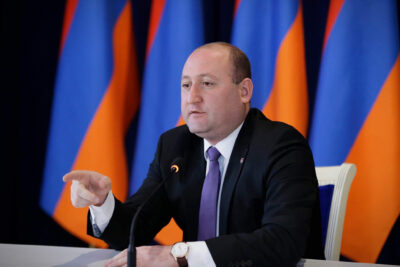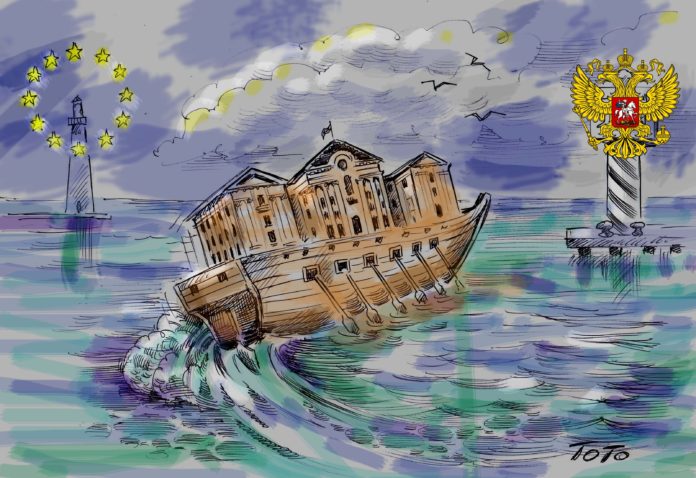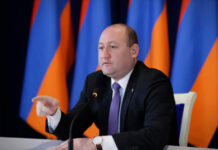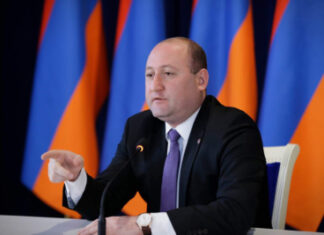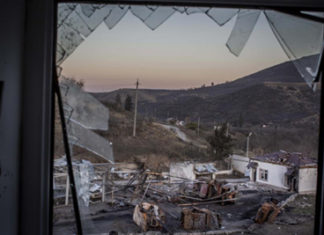Armenia is experiencing a crisis within a crisis. The global impact of the coronavirus has affected every nation, and Armenia is no exception. It has paralyzed the economy and turned upside down the public health system in every country. Armenia has been fighting the pandemic quite successfully. However, the fatalistic approach of the citizenry to the disease is not making life easy for healthcare providers.
Armenia is already in a no-war no-peace situation which is forcing people not seeing much of a future for their children to emigrate. This is a deliberate war of attrition, the outcome of which Turks and Azerbaijanis can gauge every day. This is low-intensity warfare. No amount of patriotism can stop this trend. Therefore, the war situation and the blockade must be considered external factors of destabilization.
Recently, Russia’s foreign minister, Sergei Lavrov, added fuel to this uneasy situation with a declaration favoring Azerbaijan. That blow was long in coming, due to anti-Russian rhetoric and actions in Armenia. Mr. Lavrov shook the foreign policy establishment in Armenia when he stated that a settlement document was on the table and was being discussed between the foreign ministers of Armenia and Azerbaijan. He further added that the document called for a phased system of settlement, beginning with the evacuation of Armenian forces from some regions outside the limits of Nagorno Karabakh.
Armenia’s foreign minister, Zohrab Mnatsakanyan, denied the existence of such a document under consideration. Traditionally, breakthroughs or major developments in the negotiation process would be reserved for the three chairs of the Organization for Security and Cooperation in Europe (OSCE) Minsk Group. The unilateral declaration by Russia indicated that the Kremlin had scores to settle with Armenia. That assumption was further exacerbated by the fact that along with his declaration, Mr. Lavrov had an accompanying reprimand directed to the government in Yerevan because of the lawsuits that Armenia had initiated against Gazprom and the South Caucasus railway system, which are Russian-owned companies operating in Armenia.
This much suffices about external factors destabilizing the country, over which Armenia does not have much leverage.
The abovementioned external factors are compounded by internal ones which could have been controlled through good governance and wise policies.
